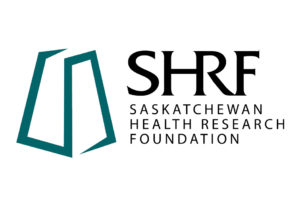For nearly a decade employers in Saskatchewan have relied on migrant workers to fill alleged labour shortages in sectors such as food services, hospitality, agriculture, and construction. Many of these workers are employed in low-wage and low-skill occupations across the province. This represents a departure from the use of the foreign worker programs to recruit highly skilled labour for the province’s health care system and other knowledge-intensive industries.  Using data obtained through access to information requests, government documents, and semi-structured interviews with gatekeepers and foreign workers (n=43), the paper explores the largely ignored world of foreign labour in Saskatchewan through a social determinant of health framework. The existing literature finds that migrant workers throughout North America are particularly vulnerable to factors such as poor housing conditions, workplace safety, and access to health services. Research also suggests that the legal status of migrant workers makes them particularly vulnerable to workplace exploitation. The paper demonstrates that the “temporary” nature of their legal status in the province increases the vulnerability of foreign workers, and raises similar barriers when accessing health services, housing, and OHS. The latter is especially pertinent since foreign workers experience high rates of workplace injuries in a province that possesses one of the highest work-related injury and fatality rates in Canada. Here, the authors conclude by identifying prescriptions for labour organizations, housing authorities, and policy makers where access to public services intersect with the world of work and employment.
Using data obtained through access to information requests, government documents, and semi-structured interviews with gatekeepers and foreign workers (n=43), the paper explores the largely ignored world of foreign labour in Saskatchewan through a social determinant of health framework. The existing literature finds that migrant workers throughout North America are particularly vulnerable to factors such as poor housing conditions, workplace safety, and access to health services. Research also suggests that the legal status of migrant workers makes them particularly vulnerable to workplace exploitation. The paper demonstrates that the “temporary” nature of their legal status in the province increases the vulnerability of foreign workers, and raises similar barriers when accessing health services, housing, and OHS. The latter is especially pertinent since foreign workers experience high rates of workplace injuries in a province that possesses one of the highest work-related injury and fatality rates in Canada. Here, the authors conclude by identifying prescriptions for labour organizations, housing authorities, and policy makers where access to public services intersect with the world of work and employment.
The working paper and preliminary results can be accessed here.
Acknowledgements
This project was funded by the Saskatchewan Health Research Foundation (2015-16 Collaborative Innovation Development Grant: Health Services & Population Health). We would like to thank research assistants Liliana Rodriguez Mancilla, Leonzo Barreno, and Noah Li who assisted with interviews. Thilina Bandara, a graduate student at the University of Saskatchewan, was instrumental in getting our project on-line by designing the Health Wanted website (www.migranthealth.ca).  Community Advisory Panel members – Trevor Morin (UFCW), Daniel Parrot (Ministry of Labour and Workplace Safety), Victoria Flores (Regina Open Door Society), Pastor Luis Estrada (Iglesia-Hispana Alianza), Claudia Colocho (former temporary foreign worker), and Collin Pullar (Saskatchewan Construction Safety Association) – provided important guidance at the beginning of the project. The Social Sciences Research Laboratories (SSRL) at the University of Saskatchewan offered the transcription services for our study. Preliminary results are scheduled to be presented at the Work, Migration and Health Forum 2018 (Dalla Lana School of Public Health, University of Toronto), the Canadian Association for Work and Labour (CAWLS) conference, and the International Labour and Employment Relations Association annual conference in Seoul, South Korea.
Community Advisory Panel members – Trevor Morin (UFCW), Daniel Parrot (Ministry of Labour and Workplace Safety), Victoria Flores (Regina Open Door Society), Pastor Luis Estrada (Iglesia-Hispana Alianza), Claudia Colocho (former temporary foreign worker), and Collin Pullar (Saskatchewan Construction Safety Association) – provided important guidance at the beginning of the project. The Social Sciences Research Laboratories (SSRL) at the University of Saskatchewan offered the transcription services for our study. Preliminary results are scheduled to be presented at the Work, Migration and Health Forum 2018 (Dalla Lana School of Public Health, University of Toronto), the Canadian Association for Work and Labour (CAWLS) conference, and the International Labour and Employment Relations Association annual conference in Seoul, South Korea.
